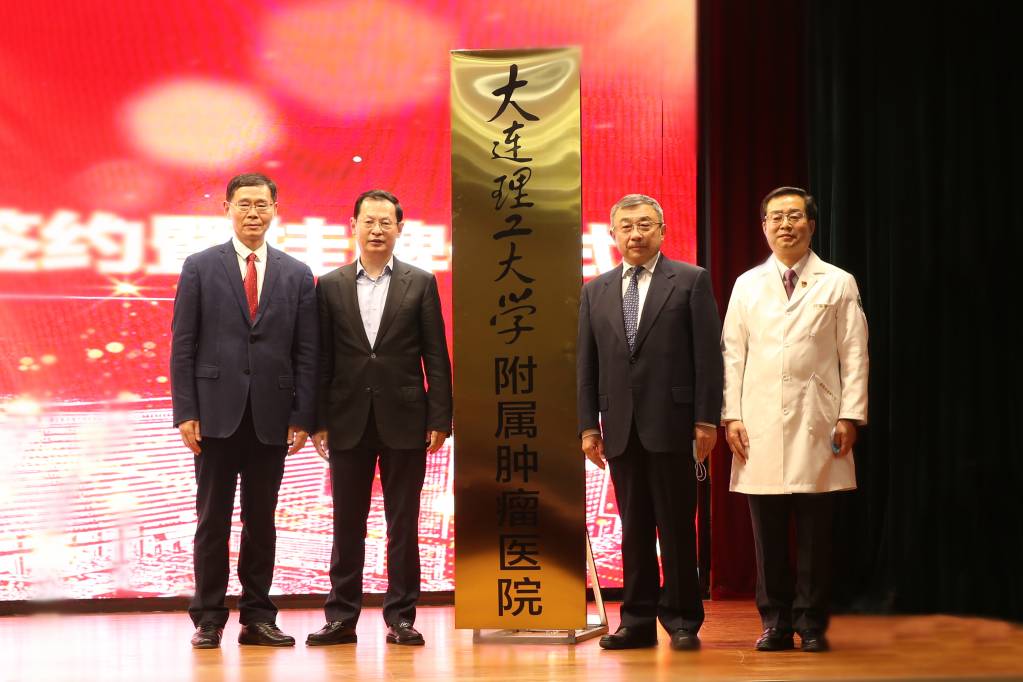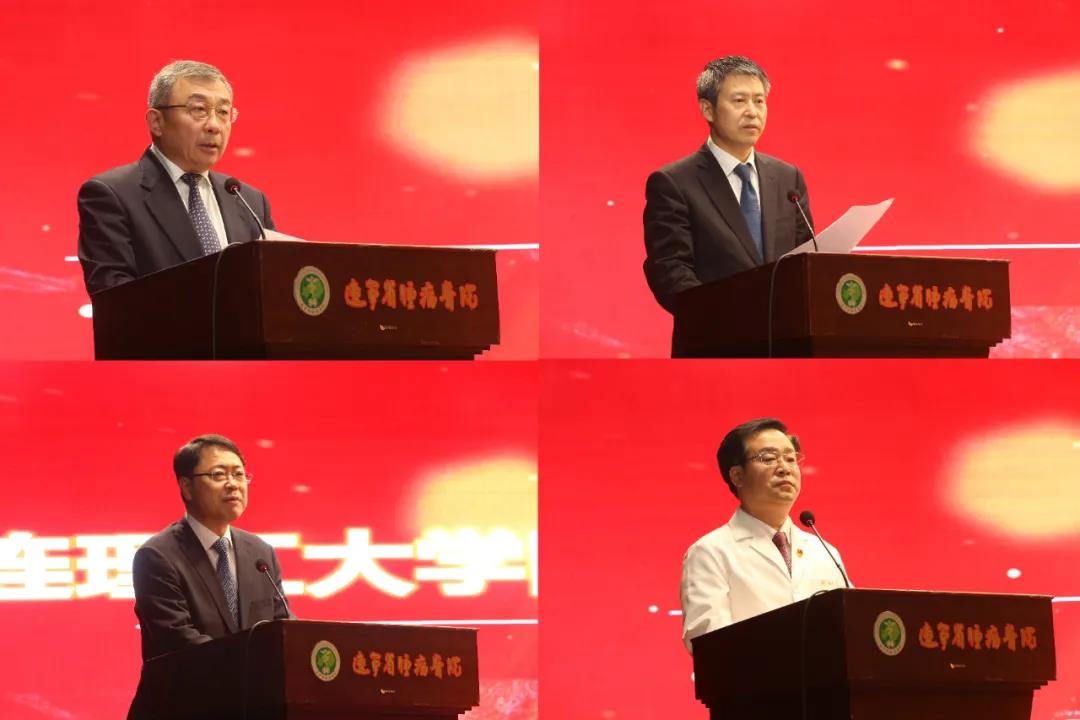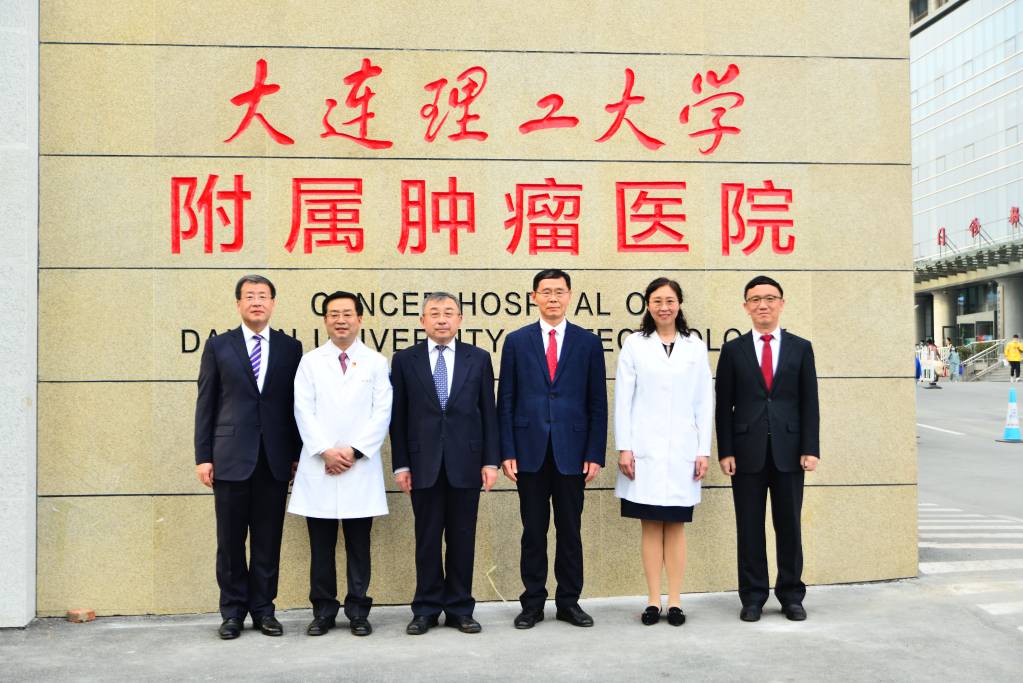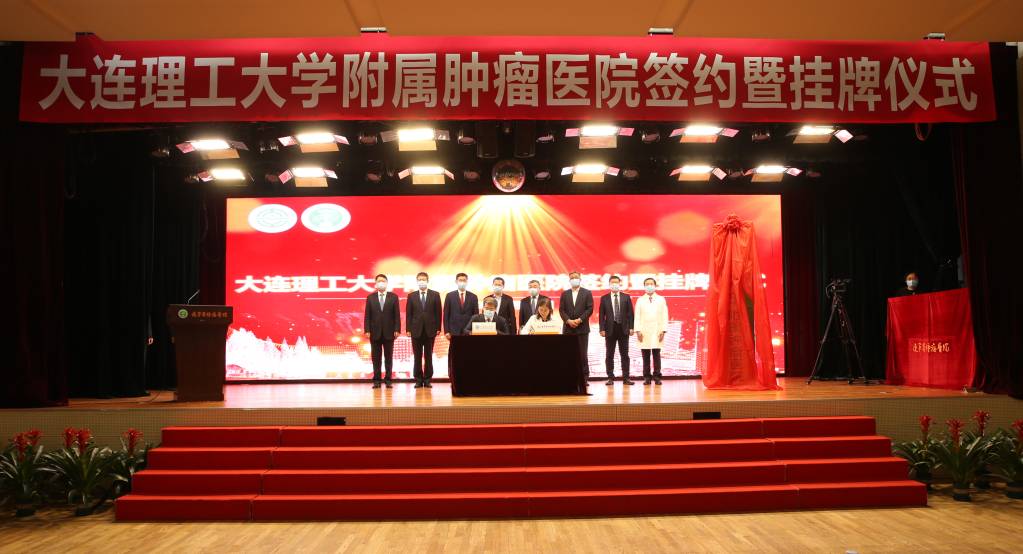Date:Apr 22, 2021
On April 21, the signing and opening ceremony of Cancer Hospital of Dalian University of Technology was held in Shenyang. Chen Lvping, vice-governor of Liaoning Province, Wang Hansong, secretary of the Party Committee of Dalian University of Technology (DUT), Guo Dongming, President of DUT, and Piao Haozhe, secretary of the Party Committee of Liaoning Cancer Hospital, attended the ceremony and inaugurated the “Cancer Hospital of Dalian University of Technology”.


On the basis of Liaoning Cancer Hospital, Cancer Hospital of Dalian University of Technology is jointly built by DUT and Liaoning Cancer Hospital. Adhering to the principle of “resources sharing, complementary advantages, joint promotion and win-win cooperation”, both sides have carried out in-depth integration and exploration in the fields of medical-engineering integration and actively built a high-quality platform for university-hosipital cooperation. In the future, the two sides will make full use of the advantages of basic disciplines of DUT and the high-quality medical resources of Liaoning Cancer Hospital to carry out in-depth cooperation in discipline construction, personnel training, science and technology development, etc., work together to promote the construction of first-class universities, strive to build a national-level regional medical center of cancer, effectively improve the level of cancer diagnosis and treatment, and provide better services for cancer patients in Liaoning Province and nationwide. Furthermore, both the university and the hospital will implement the social responsibility to help the construction of Healthy Liaoning and Healthy China for new and greater achievements.


In the past two years, from carrying out medical-engineering integration research to comprehensive cooperation, the university and the hospital have been constantly gathering innovative development thinking and carrying out deep integration in the frontier fields of medical-engineering integration such as big data precision medicine, biomedical engineering and high-end medical devices. The two sides encourage the mutual recruitment of experts, joint training of postgraduates, selecting experts and scholars to give interactive lectures, complementing and sharing the scientific research achievements and high-end talents of universities and clinical medical treatment of hospitals, creating a medical-engineering integration talent training base, and making new breakthroughs in the prevention and treatment of cancers and other major diseases.